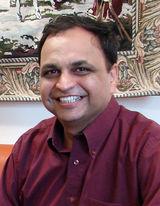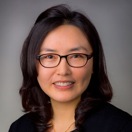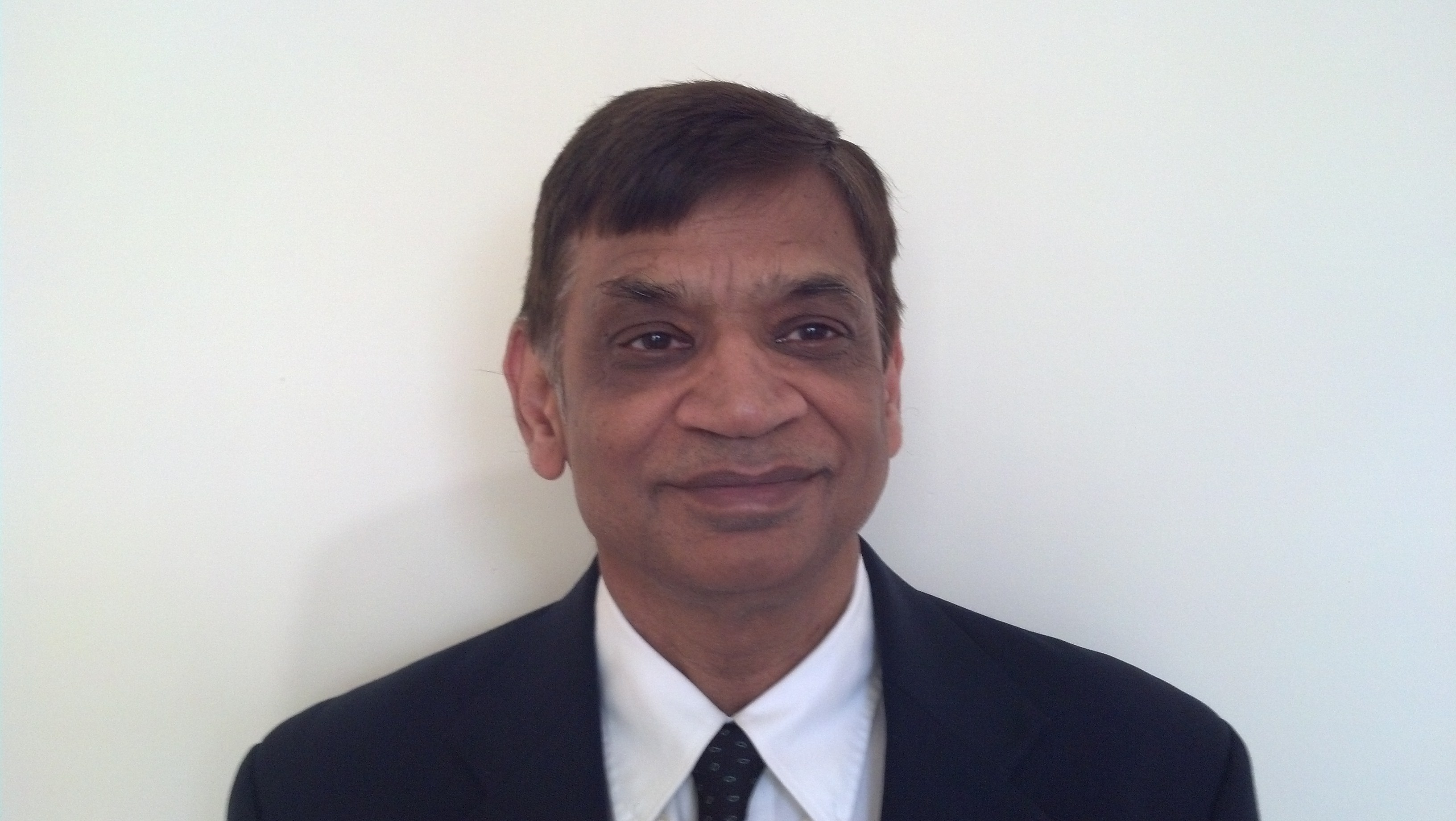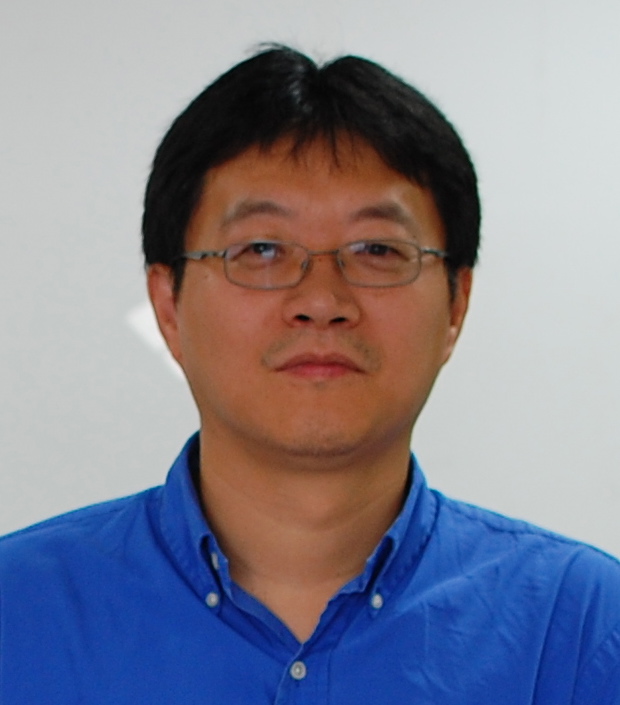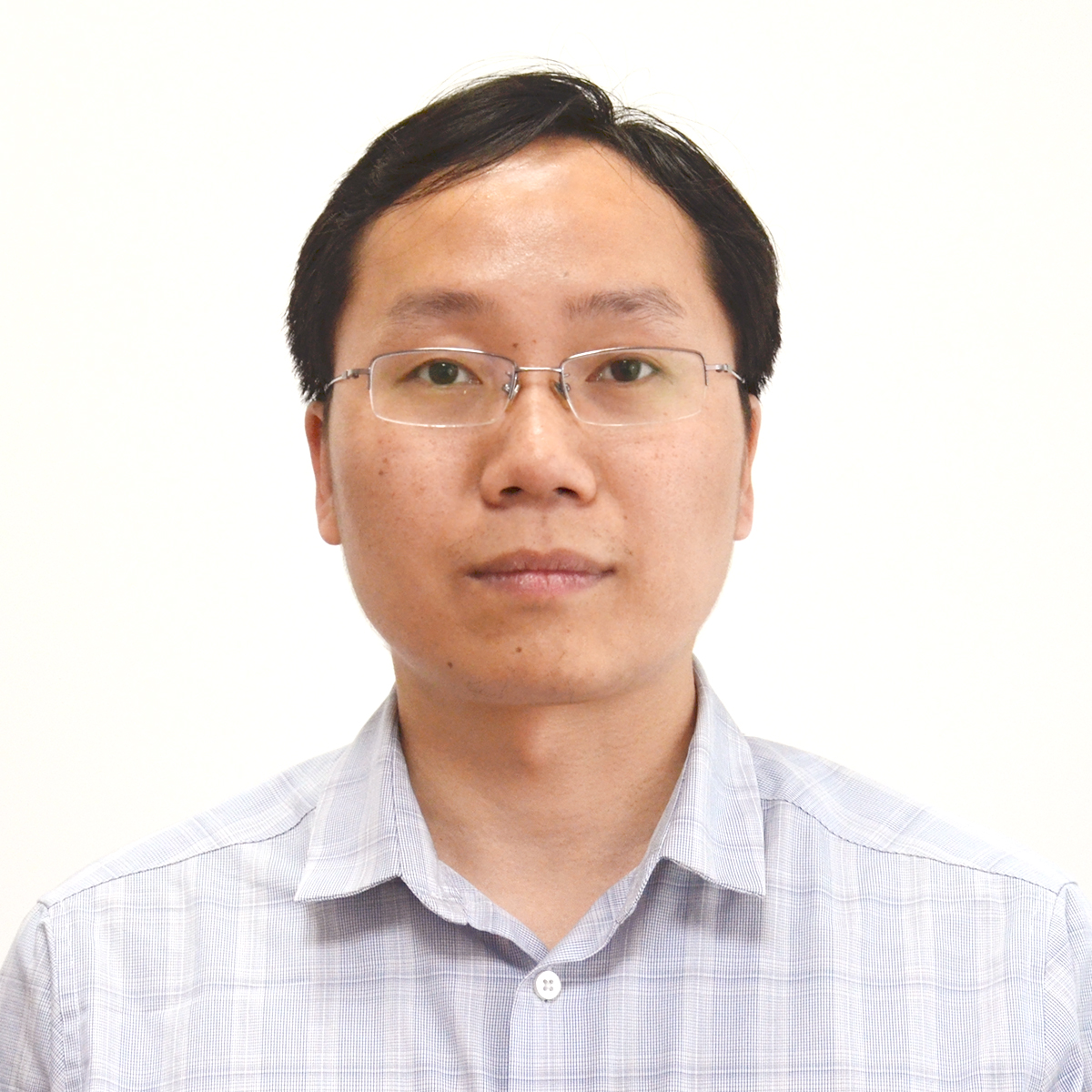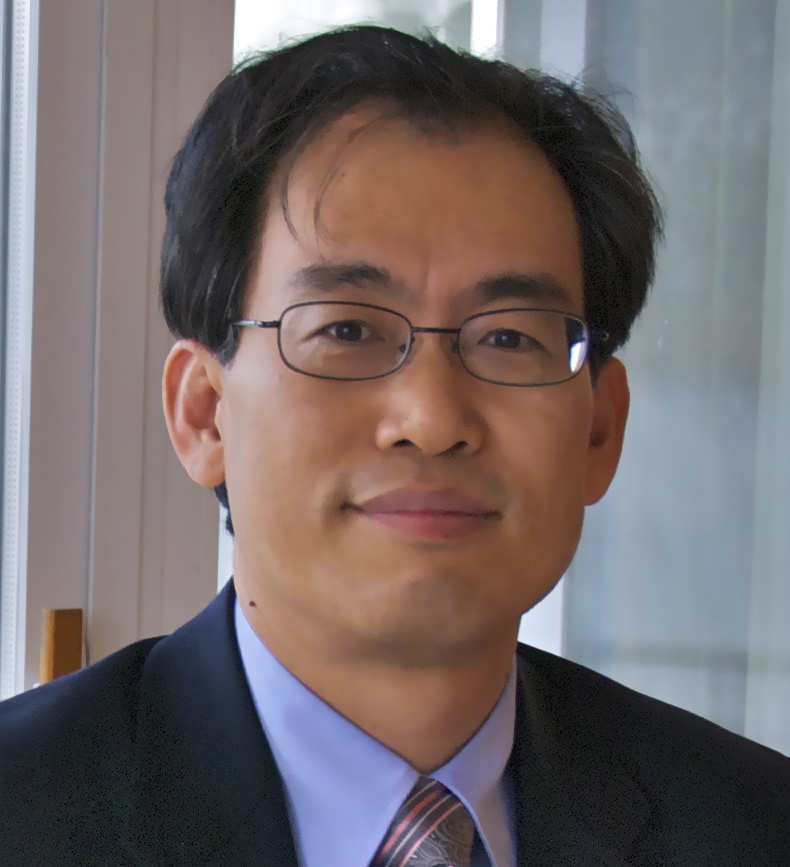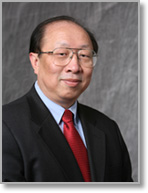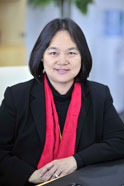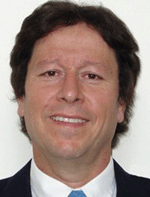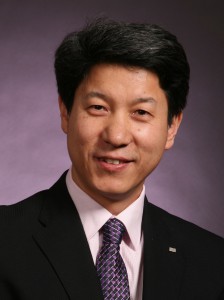Technical Program Overview
| ||||||
| August 4 (Monday) | ||||||
| ||||||
| ||||||
| ||||||
| ||||||
| ||||||
| ||||||
| ||||||
| ||||||
|
||||||
| ||||||
| August 5 (Tuesday) | ||||||
| ||||||
| ||||||
| ||||||
| ||||||
| ||||||
| ||||||
| ||||||
|
||||||
| ||||||
| August 6 (Wednesday) | ||||||
| ||||||
| ||||||
| ||||||
| ||||||
| ||||||
| ||||||
| ||||||
|
||||||
| August 7 (Thursday) | ||||||
| ||||||
| ||||||
| ||||||
| ||||||
| ||||||
| ||||||
| ||||||
|
Monday, August 4th 8:50 - 10:20
Keynote I: Big Data Science and Social Networks - Accelerating Insights and Building Value
Speaker: Alok N. Choudhary , Northwestern University, USAChair: Pavan Balaji, Argonne National Laboratory, USA
Room: C201
Abstract: Knowledge discovery has been driven by theory, experiments and by large-scale simulations on high-performance computers. Modern experiments and simulations involving satellites, high-throughput instruments, sensors, and supercomputers yield massive amounts of data. What has changed recently is that the world is creating massive amounts of data at an astonishing pace and diversity. Concurrently, social communities such as Facebook, Twitter, Google, and others are creating massive amounts of data at an astonishing pace. But, even more complex is the network that connects the creators of data. There is knowledge to be discovered in both for actionable insights.
In this talk I present that processing, mining and analyzing this data effectively is a critical component for knowledge discovery. And we can no longer rely upon traditional ways of dealing with the data due to its scale and speed. In particular, I present approaches and many examples to derive science and business value. Examples include deriving knowledge from massive data for marketing and other applications, understanding sentiments, determining influencers based on dynamic networks. Particular examples from major social networks will be used. Then I connect the applicability of approaches to addressing important science problems including in climate change understanding and medicine.
Biography: Alok Choudhary is the Henry & Isabelle Dever Professor of Electrical Engineering and Computer Science and a professor at Kellogg School of Management. He is also the founder, chairman and chief scientist (served as its CEO during 2011-2013) of 4C insights (formerly Voxsup Inc.)., a big data analytics and social media marketing company. He received the National Science Foundation's Young Investigator Award in 1993. He is a fellow of IEEE, ACM and AAAS. His research interests are in high-performance computing, data intensive computing, scalable data mining, computer architecture, high-performance I/O systems, software and their applications in science, medicine and business. Alok Choudhary has published more than 400 papers in various journals and conferences and has graduated 33 PhD students. Techniques developed by his group can be found on every modern processor and scalable software developed by his group can be found on many supercomputers. Alok Choudhary's work and interviews have appeared in many traditional media including New York Times, Chicago Tribune, The Telegraph, ABC, PBS, NPR, AdExchange, Business Daily and many international media outlets all over the world.
August 4 (Monday) 10:40-12:20
Session 1: CAAME
Chair: Xiaojun Cao, Georgia State UniversityRoom: C201
Qian Hu(Georgia State University), Yang Wang(La Salle University), Xiaojun Cao(Georgia State University)
Shenglin Zhang(Tsinghua University) Ying Liu(Tsinghua University), Dan Pei(Tsinghua University)
Kaliappa Ravindran (City University of New York)
Zhongxing Ming(Tsinghua University), Mingwei Xu(Tsinghua University), Dan Wang(The Hong Kong Polytechnic University)
Session 1: SPT
Chair: Ruiyun Yu, Northeastern University, ChinaRoom: C301
Mohammed Rangwala (Purdue University Indianapolis), Zhengli Liang (Communication University of China), Wei Peng (Purdue University Indianapolis), Xukai Zou (Purdue University Indianapolis), Feng Li (Purdue University Indianapolis)
Toru Mano (NTT Network Innovation Labs), Takeru Inoue (NTT Network Innovation Labs), Dai Ikarashi (NTT Secure Platform Labs), Koki Hamada (NTT Secure Platform Labs), Kimihiro Mizutani (NTT Network Innovation Labs), Osamu Akashi (NTT Network Innovation Labs)
Zhe Fu (Tsinghua University), Kai Wang (Tsinghua University), Liangwei Cai (Shenzhen University), Jun Li (Tsinghua University)
Session 1: DBDC
Chair: Jun Huang, Chongqing University of Posts and TelecommunicationsRoom: C401
Dan Liao (University of Electronic Science and Technology of China), Gang Sun (University of Electronic Science and Technology of China), Vishal Anand (The College at Brockport, State University of New York), Kexiang Xiao (University of Electronic Science and Technology of China), Mao Gan (University of Electronic Science and Technology of China)
Hao Wang (Shanghai Jiao Tong University), Yangming Zhao (University of Electronic Science and Technology of China), Haibing Guan (Shanghai Jiao Tong University), Fanfu Zhou (Shanghai Jiao Tong University)
Soumya Hegde (Hewlett-Packard), Raksha Srinivas (Finisar Corporation), Dinil Mon Divakaran (National University of Singapore), Mohan Gurusamy (National University of Singapore)
Ming Zhu(Tsinghua University )
August 4 (Monday) 13:30 - 15:00
Panel I: CyberPhysical Clouds - Risks and Opportunities
Title: CyberPhysical Clouds - Risks and OpportunitiesModerator: Krishna Kant, Temple University, USA, ppt
Room: C201
Panelists:
Jun Wang: University of Central Florida, USA, ppt
Haibo Chen: Shanghai Jiao Tong University, China, ppt
Baek-Young Choi: University of Missouri - Kansas City, USA ppt
Panelist Info:
Krishna Kant is currently a professor at Temple University in Philadelphia, PA. Earlier he was with George Mason University and also served as a program director in computer, information science and engineering (CISE) directorate of National Science Foundation (NSF). At NSF, he was also instrumental in the development and running of NSF wide sustainability initiative called SEES (science, engineering and education for sustainability). His current areas of research include sustainability and energy efficiency in data centers, configuration robustness and security, and application of computing technologies to larger sustainability problems. He carries 33 years of combined experience in academia, industry, and government. He has published in a wide variety of areas in computer science, authored a graduate textbook on performance modeling of computer systems, and coedited two books on infrastructure and cloud computing security.
Jun Wang joined Department of Electrical Engineering and Computer Science in University of Central Florida in 2006. Prior to that, he was a faculty in Computer Science and Engineering Department of University ofNebraska, Lincoln. He received his Ph.D. from University of Cincinnati in 2002. He is the recipient of National Science Foundation Early Career Award 2009 and Department of Energy Early Career Principal Investigator Award 2005. Recently, he has won 2013 Dean's Research Professorship Award, Charles N. Millican Faculty Fellow 2010-2012, and University of Central Florida Research Incentive Award 2010. His research has been sponsored mainly by National Science Foundation and Department of Energy. In the last five years, the total amount of research funding is approximately 3+M. He has conducted extensive research in the areas of Computer Systems and High Performance Computing. His specific research interests include massive storage and file system in local, distributed and parallel systems environment. He has authored over 80 publications in premier journals such as IEEE Transactions on Computers, IEEE Transactions on Parallel and Distributed Systems, and leading HPC and systems conferences such as IPDPS, HPDC, EuroSys, ICS, Middleware, FAST. He has graduated 6 Ph.D. students who upon their graduations were employed by major US IT corporations (e.g., Google, Microsoft, EMC, etc). He has served as an Associate Editor for the IEEE Transactions on Parallel and Distributed Systems and International Journal of Parallel, Emergent and Distributes Systems (IJPEDS).
Haibo Chen is a full professor in School of Software, Shanghai Jiao Tong University. His research interests are system virtualization and systems software. He has published papers in reputed conferences such as SOSP, EuroSys, Usenix ATC, ISCA, MICRO and ICSE. He served or is serving as program committee members of reputed conferences such as SOSP, EuroSys, CGO and Usenix ATC. Haibo received the 2011 Distinguished Ph.D thesis award from China Ministry of Education.
Baek-Young Choi is an Associate Professor in the Department of Computer Science and Electrical Engineering at the University of Missouri - Kansas City. She received her Ph.D. in Computer Science and Engineering from the University of Minnesota, Twin Cities. She held positions at Sprint Advanced Technology Labs, and the University of Minnesota, Duluth, as a post-doctoral researcher, and 3M McKnight distinguished visiting assistant professor, respectively. She has been a fellow of U.S. Air Force Research Laboratory's Visiting Faculty Research Program (AFRL-VFRP), and Korea Telecom - Advance Institute of Technology. Her research interests lie in the broad area of algorithm and system development for diverse types of networks, especially in resource management and network monitoring. She has authored the book, 'Scalable Network Monitoring in High Speed Networks', and co-edited the book, 'High Performance Cloud Auditing and Applications.' She has served on NSF and DOE panels multiple times, and is currently an Associate Editor for Elsevier Journal of Computer Networks and Springer Journal of Telecommunication Systems. She has also served as a general chair, technical program chair, technical program committee member, organizing committee member, session chair, and reviewer for many international conferences and workshops. Her research has been supported by several agencies including NSF, Sprint-Nextel, AFRL, U. Missouri System, and UMKC. She is a senior member of ACM and IEEE, and a member of IEEE Women in Engineering.
August 4 (Monday) 15:30-18:00
Session 2: SNPC
Chair: Jenhui Chen, Chang Gung UniversityRoom: C201
Xiaojiang Ren (Australian National University), Weifa Liang (Australian National University), Wenzheng Xu (Australian National University)
Yunsheng Wang (Kettering University), Jie Wu (Temple University)
Zheng Guo (Nanjing University), Feng Ye (University of Nebraska-Lincoln), Jinghong Guo (China Electric Power Research lnstitute), Yun Liang (China Electric Power Research lnstitute), Guoliang Xu (Nanjing University), Xuping Zhang (Nanjing University), Yi Qian (University of Nebraska - Lincoln)
Sucheng Fan (Nanjing University), Feng Ye (University of Nebraska-Lincoln), Jinghong Guo (China Electric Power Research lnstitute), Yun Liang (China Electric Power Research lnstitute), Guoliang Xu (Nanjing University), Xuping Zhang (Nanjing University), Yi Qian (University of Nebraska - Lincoln)
Xinming Zhang (University of Science and Technology of China), Fan Yan (University of Science and Technology of China), Lei Tao (University of Science and Technology of China), Dan Keun Sung (Korea Advanced Institute of Science and Technology)
Rabia Enam (SirSyed University of Engineering Technology), Rehan Qureshi (SirSyed University of Engineering Technology)
Session 2: GCIP
Chair: Jun Bi (Tsinghua University, China)Room: C301
Kaliappa Ravindran (City University of New York), Michael Iannelli (CUNY City College)
Kyung Hwa Kim (Columbia University), Hyunwoo Nam (Columbia University), Vishal Singh (Inncretech), Daniel Song (Rice University), Henning Schulzrinne (Columbia University)
Sheng Zhang (Nanjing University), Zhuzhong Qian (Nanjing University), Jie Wu (Temple University), Sanglu Lu (Nanjing University)
Eunsang Cho (Seoul National University), Jaeyoung Choi (SAP Labs), Donghyun Kim (Seoul National University), Jongsoon Yoon (Seoul National University), Ted Taekyoung Kwon (Seoul National University), Yanghee Choi (Seoul National University)
Chenguang Kong (Georgia State University), Xiaojun Cao (Georgia State University)
Feixiong Zhang (Rutgers University), Yanyong Zhang (Rutgers University), Alex Reznik (InterDigital Communication LLC), Hang Liu (Catholic University of America), Chen Qian (University of Kentucky), Chenren Xu (Rutgers University)
Session 2: CCM
Chair: Bo Sheng, University of Massachusetts Boston, USARoom: C401
Ying Dai (Temple University), Jie Wu (Temple University)
Longfei Wu (Temple University), Xiaojiang Du (Temple University), Jie Wu (Temple University)
Shuang Liang (Temple University), Xiaojiang Du (Temple University), Chiu C. Tan (Temple University), Wei Yu (Towson University)
Sulabh Bhattarai (Towson University), Stephen Rook (Towson University), Linqiang Ge (Towson University), Sixiao Wei (Towson University), Wei Yu (Towson University), Xinwen Fu (University of Massachusetts Lowell)
Jun Huang (South Dakota School of Mines and Technology), Yanxiao Zhao (South Dakota School of Mines and Technology), Kazem Sohraby (South Dakota School of Mines and Technology)
Yanxiao Zhao (South Dakota School of Mines and Technology), Md Nashid Anjum (South Dakota School of Mines and Technology), Min Song (The University of Toledo)
Tuesday, August 5th 8:30 - 10:00
Keynote II: Sampling Theory of Large Networks
Speaker: John C.S. Lui, The Chinese University of Hong Kong, ChinaChair: Lisong Xu, The University of Nebraska Lincoln, USA
Room: C201
Abstract: Often times, large networks can be represented as graphs. For example, the Internet topology can be represented an an undirected graph while large logical networks (e.g., Facebook, Twitter,..etc) can be represented as either directed or undirected graphs. For these graphs, characterizing node pair relationships is important for applications such as friend recommendation and interest targeting in online social networks (OSNs). Due to the large scale nature of such networks, it is infeasible to enumerate all user pairs and so sampling is used. In this talk, we show that it is a great challenge even for OSN service providers to characterize user pair relationships even when they posses the complete graph topology. The reason is that when sampling techniques (i.e., uniform vertex sampling (UVS) and random walk (RW)) are naively applied, they can introduce large biases, in particular, for estimating similarity distribution of user pairs with constraints such as existence of mutual neighbors, which is important for applications such as identifying network homophily. Estimating statistics of user pairs is more challenging in the absence of the complete topology information, since an unbiased sampling technique such as UVS is usually not allowed, and exploring the OSN graph topology is expensive. To address these challenges, we present asymptotically unbiased sampling methods to characterize user pair properties based on UVS and RW techniques respectively.
Biography: John C.S. Lui was born in Hong Kong and is currently a full professor in the Department of Computer Science & Engineering at The Chinese University of Hong Kong. He received his Ph.D. in Computer Science from UCLA. After his graduation, he joined the IBM Almaden Research Laboratory/San Jose Laboratory and participated in various research and development projects on file systems and parallel I/O architectures. He later joined the Department of Computer Science and Engineering at The Chinese University of Hong Kong. His current research interests are in network sciences with large data implications (e.g., online social networks, large scale data analytics, etc), network/system security (e.g., cloud security, mobile security, ...etc), network economics, large scale distributed systems and performance evaluation theory. John served as the chairman of the CSE Department from 2005-2011. He received various departmental teaching awards and the CUHK Vice-Chancellor's Exemplary Teaching Award. John received the CUHK Faculty of Engineering Research Excellence Award (2011-2012). John is a co-recipient of the IFIP WG 7.3 Performance 2005, IEEE/IFIP NOMS 2006 and SIMPLEX'14 Best Paper Awards. He is an elected member of the IFIP WG 7.3, Fellow of ACM, Fellow of IEEE, Senior Research Fellow of the Croucher Foundation and is currently the chair of the ACM SIGMETRICS. His personal interests include films and general reading
August 5 (Tuesday) 10:20-12:20
Session 3: Best Paper Finalists
Chair: Aaron Striegel, University of Notre DameRoom: C201
Ji Li (Stony Brook University), Yuanyuan Yang (Stony Brook University), Cong Wang (Stony Brook University)
Jonathan Backens (Old Dominion University), Min Song (University of Toledo), Chunsheng Xin (Old Dominion University)
Panagiotis Georgopoulos (ETH Zurich), Matthew Broadbent (Lancaster University), Bernhard Plattner (ETH Zurich), Nicholas Race(Lancaster University)
Bingshuang Liu(Peking University), Skyler Berg(University of Oregon), Jun Li(University of Oregon), Tao Wei(UC Berkeley), Chao Zhang(UC Berkeley), Xinhui Han( Peking University)
Session 3: WAM
Chair: Rodolfo Oliveira, University of LisbonRoom: C301
Xinming Zhang (University of Science and Technology of China), Bo Yang (University of Science and Technology of China), Yangyang Ma (University of Science and Technology of China)
Cong Liu (Sun Yat-sen University), Yan Pan Sun (Yat-sen University), Jun Zhang (Sun Yat-sen University), Mingjun Xiao (University of Science and Technology of China), Ai Chen (Shenzhen Institutes of Advanced Technology, Chinese Academy of Science), Jie Wu (Temple University)
Jia Lu (National University of Defense Technology), Biao Han (National University of Defense Technology), Wei Yang (Navy Academy of Armament), Yuanming Gao (National University of Defense Technology), Wenhua Dou (National University of Defense Technology)
Xinming Zhang (University of Science and Technology of China), Zhilong Dai (University of Science and Technology of China), Haitao Zhu (University of Science and Technology of China)
Yao-Jen Tang (National Tsing-Hua University), Jian-Jhih Kuo (National Tsing-Hua University), Ming-Jer Tsai (National Tsing-Hua University)
Session 3: MRN
Chair: Waltenegus Dargie, Technical University of DresdenRoom: C401
Liang Chen (The Chinese University of Hong Kong), Yipeng Zhou (Shenzhen University), Dah Ming Chiu (The Chinese University of Hong Kong)
Zhao Xiao (University of Science and Technology), Lu Hancheng (University of Science and Technology),
Rui Deng (Xi'an JiaoTong University), Guizhong Liu (Xi'an JiaoTong University), Jian Yang (Xi'an JiaoTong University)
Uri Verner (Technion), Avi Mendelson (Technion), Assaf Schuster (Technion)
Pouya Ostovari (Temple University), Jie Wu (Temple University), Abdallah Khreishah (New Jersey Institute of Technology)
August 5 (Tuesday) 13:30 - 15:00
Panel II: Research Directions on Mobile and Wireless Sensor Networks
Title: Research Directions on Mobile and Wireless Sensor NetworksModerator: Min Song, University of Toledo and NSF, USA
Room: C201
Panelists:
Wei Zhao: University of Macau
Ty Znati: University of Pittsburgh, USA
Chih-Lin I: China Mobile
Zhisheng Niu: Tsinghua University
Dr. Min Song is a Professor in the Electrical Engineering and Computer Science Department at the University of Toledo. Currently, he is serving the National Science Foundation as a Program Director in the Division of Computer and Network Systems. Dr. Song received his Ph.D. in Computer Science from the University of Toledo in 2001. His research interests include design, analysis, and evaluation of cognitive radio networks, wireless sensor networks, wireless mesh networks, cyber physical systems, and wireless ad-hoc networks. His research interests also include network security and mobile computing. Dr. Song's professional career is comprised of a total 25 years in industry, academia, and government. Over the course of his career, Dr. Song has held various leadership positions and gained experience in performing a wide range of duties and responsibilities. Of most significance is his service with the NSF as a Program Director since October 2010. Over the years, he has published more than 140 technical papers. Dr. Song was the Founding Director of a Computer Networking System Division in an IT company, and launched two international journals and served as Editor-in-Chief. Dr. Song has acted as an Editor or Guest Editor of 14 international journals, and served as General Chair, Technical Program Committee Chair, and Session Chair for numerous international conferences. Dr. Song is the recipient of NSF CAREER award.
Professor Wei Zhao completed his undergraduate studies at Shaanxi Normal University, China, in 1977, and then received his MSc and PhD degrees in Computer and Information Sciences at the University of Massachusetts at Amherst, USA in 1983 and 1986, respectively. In 2008, Professor Zhao was appointed as the 8th Rector for the University of Macau. Prior to this position, Professor Zhao also served as the Director of the Division of Computer and Network Systems at the US National Science Foundation, the Dean of Science at Rensselaer Polytechnic Institute, and the Senior Associate Vice President of Research at Texas A&M University, making him one of the few scholars from Mainland China who have ever held such senior posts in the US federal government and high education institutions.
An IEEE fellow, Professor Zhao is internationally acclaimed for his research in the areas of Internet of Things, distributed computing, and cyber-physical systems. His research team has won numerous awards from international research community. In recognition of his outstanding achievements in scientific research and contributions to higher education, he has been conferred honorary doctorate degrees by twelve world-renowned universities. In 2011, he was appointed by the Chinese Ministry of Science and Technology as the Chief Scientist of the Internet of Things - a national 973 project. In 2012, he was elected to be an Academician of the International Eurasian Academy of Sciences.
Dr. Znati received a Ph.D. degree in Computer Science from Michigan State University in 1988, and a M.S. degree in Computer Science from Purdue University, in 1984. He is a Professor in the Department of Computer Science, with a joint appointment in Computer Engineering at the School of Engineering. Dr. Znati served as the Director of the Computer and Network Systems Division at the National Science Foundation. He also served as a Senior Program Director for networking research at the National Science Foundation. In this capacity, Dr. Znati led the Information Technology Research (ITR) Initiative, a cross-directorate research program, and served as the Committee Chair of the NSF Information Technology Research Initiative.
Dr. Znati's main research interests are in the design and analysis of evolvable, secure and resilient network architectures and protocols for wired and wireless communication networks, and the design of new fault-tolerant mechanisms for energy-aware resiliency in data-intensive computing. He is also interested in bio-inspired approaches to address complex computing and communications design issues that arise in large-scale heterogeneous wired and wireless networks. Dr. Znati has served as the General Chair of several main conferences, including GlobeCom 2010, IEEE INFOCOM 2005, SECON 2004, the first IEEE conference on Sensor and Ad Hoc Communications and Networks, the Annual Simulation Symposium, and the Communication Networks and Distributed Systems Modeling and Simulation Conference. He also served or currently serves as a member of Editorial Boards of a number of networking, distributed system and security journals and transactions.
Dr. Chih-Lin I is the China Mobile Chief Scientist of Wireless Technologies, in charge of advanced wireless communication R&D effort of China Mobile Research Institute (CMRI). She established the Green Communications Research Center of China Mobile, spearheading major initiatives including 5G Key Technologies R&D; high energy efficiency system architecture, technologies, and devices; green energy; C-RAN and soft base station.
Dr. I received her Ph.D. degree in Electrical Engineering from Stanford University, has almost 30 years experience in wireless communication area. She has worked in various world-class companies and research institutes, including wireless communication fundamental research department of AT&T Bell Labs; Headquarter of AT&T, as Director of Wireless Communications Infrastructure and Access Technology; ITRI of Taiwan, as Director of Wireless Communication Technology; Hong Kong ASTRI, as VP and the Founding GD of Communications Technology Domain.
Dr. I received the Trans. COM Stephen Rice Best Paper Award, and is a winner of CCCP "National 1000 talent" program. She was an elected Board Member of IEEE ComSoc, Chair of ComSoc Meeting and Conference Board, and the Founding Chair of IEEE WCNC Steering Committee. She is currently an Executive Board Member of GreenTouch, and a Network Operator Council Member of ETSI NFV.
Zhisheng Niu
graduated from Beijing Jiaotong University, China, in 1985, and got his M.E. and D.E. degrees from Toyohashi University of Technology, Japan, in 1989 and 1992, respectively. During 1992-94, he worked for Fujitsu Laboratories Ltd., Japan, and in 1994 joined with Tsinghua University, Beijing, China, where he is now a professor at the Department of Electronic Engineering and deputy dean of the School of Information Science and Technology. He is also a guest chair professor of Shandong University, China. His major research interests include queueing theory, traffic engineering, mobile Internet, radio resource management of wireless networks, and green communication and networks.
Dr. Niu has been an active volunteer for various academic societies, including Director for Conference Publications (2010-11) and Director for Asia-Pacific Board (2008-09) of IEEE Communication Society, Membership Development Coordinator (2009-10) of IEEE Region 10, Councilor of IEICE-Japan (2009-11), and council member of Chinese Institute of Electronics (2006-11). He is now a distinguished lecturer (2012-15) and Chair of Emerging Technology Committee (2014-15) of IEEE Communication Society, a distinguished lecturer (2014-16) of IEEE Vehicular Technologies Society, a member of the Fellow Nomination Committee of IEICE Communication Society (2013-14), standing committee member of Chinese Institute of Communications (CIC, 2012-16), and associate editor-in-chief of IEEE/CIC joint publication China Communications.
Dr. Niu received the Outstanding Young Researcher Award from Natural Science Foundation of China in 2009 and the Best Paper Award from IEEE Communication Society Asia-Pacific Board in 2013. He also co-received the Best Paper Awards from the 13th, 15th and 19th Asia-Pacific Conference on Communication (APCC) in 2007, 2009, and 2013, respectively, International Conference on Wireless Communications and Signal Processing (WCSP'13), and the Best Student Paper Award from the 25th International Teletraffic Congress (ITC25). He is now the Chief Scientist of the National Basic Research Program (so called "973 Project") of China on "Fundamental Research on the Energy and Resource Optimized Hyper-Cellular Mobile Communication System" (2012-2016), which is the first national project on green communications in China. He is a fellow of both IEEE and IEICE.
August 5 (Tuesday) 15:30-18:00
Session 4: SNPC
Chair: Xinming Zhang, University of Science and Technology of ChinaRoom: C201
Ling Guo (Renmin University of China), Donghyun Kim (North Carolina Central University), Deying Li (Renmin University of China), Wenping Chen (Renmin University of China), Alade Tokuta (North Carolina Central University)
Ruiyun Yu (Northeastern University), Pengfei Wang (Northeastern University), Zhijie Zhao (China Mobile Group Liaoning Co., LTD)
Jiajun Zhu (Huazhong University of Science and Technology), Bang Wang (Huazhong University of Science and Technology)
Jiajun Sun ( Beijing University of Posts and Telecommunications), Huadong Ma ( Beijing University of Posts and Telecommunications)
Jiajun Sun ( Beijing University of Posts and Telecommunications), Huadong Ma ( Beijing University of Posts and Telecommunications)
Junzhao Du (Xidian University), Sicong Liu (Xidian University), Chi Xu (Xidian University), Kai Wang (Xidian University), Hui Liu (Xidian University), Kewei Sha (Oklahoma City University)
Session 4: GCIP
Chair: Zhuzhong Qian, Nanjing UniversityRoom: C301
Quangang Li (University of Electronic Science and Technology of China), Jinqiao Shi (Institute of Information Engineering, Chinese Academy of Sciences) Tingwen Liu (Institute of Information Engineering, Chinese Academy of Sciences), Li Guo (Institute of Information Engineering, Chinese Academy of Sciences), Zhiguang Qin (University of Electronic Science and Technology of China)
Ying Feng ( Texas A&M University), Radu Stoleru (Texas A&M University), Chien-An Chen (Texas A&M Universty), Geoffrey Xie (Naval Postgraduate School)
Shen Li (UIUC), Lu Su (SUNY Buffalo), Yerzhan Suleimenov (UIUC), Hengchang Liu (University of Science and Technology of China) Tarek Abdelzaher (University of Illinois at Urbana Champaign), Guihai Chen (Shanghai Jiaotong University, China),
Baobao Zhang (Tsinghua University), Jun Bi (Tsinghua University), Jianping Wu (Tsinghua University)
Waltenegus Dargie (Technical University of Dresden)
Min Yao (Tsinghua University), Chuang Lin (Tsinghua University)
Session 4: CCM
Chair: Chih-Lin I, China MobileRoom: C401
Quanlong Li (Harbin Institute of Technology), Qing Yang ( Montana State University), Shaoen Wu (Ball State University)
Xin Su (Tsinghua National Laboratory for Information Science and Technology), Jie Zeng (Tsinghua National Laboratory for Information Science and Technology), Chiyang Xiao (Tsinghua National Laboratory for Information Science and Technology)
Ant\F3nio Furtado (Universidade Nova de Lisboa / Instituto de Telecomunica\E7\F5es), Rodolfo Oliveira (Universidade Nova de Lisboa / Instituto de Telecomunica\E7\F5es), Rui Dinis (Universidade Nova de Lisboa / Instituto de Telecomunica\E7\F5es), Luis Bernardo (Universidade Nova de Lisboa / Instituto de Telecomunica\E7\F5es)
Ke Liu (State Key Laboratory of Computer Architecture Institute of Computing Technology Chinese Academy of Sciences), Jack Y. B. Lee (The Chinese University of Hong Kong)
Shaoen Wu (Ball State University), Lixing Song (Ball State University)
Xiaohua Xu (University of Toledo), Min Song (University of Toledo), Chunsheng Xin (Old Dominion University)
Wednesday, August 6th 8:30 - 10:00
Keynote III: Mining Online Social Networks: Opportunities and Privacy Issues
Speaker: Keith RossDean of Engineering and Computer Science, NYU Shanghai
Leonard J. Shustek Distinguished Professor, CSE Dept., NYU
Chair: Xiaobo Zhou, University of Colorado - Colorado Springs, USA
Room: C201
Abstract: Online social networks -- such as Facebook, Twitter, Instagram, WeChat, and many others -- contain a treasure trove of data which can be mined not only for targeted advertising but also for directly improving our lives in many ways. In addition to textual data, this treasure trove includes geographical presence data and massive quantities of image data. Although mining social networks provides numerous business and quality-of-life opportunities, it also can potentially lead to deep intrusions into our privacy.
In this talk I'll survey some recent research in mining social networks and privacy. We will examine tracking user locations using Wechat; uncovering users' purchase history using eBay; inferring sensitive information about Facebook users (including children); mining sensitive information from photo collections, such as from Facebook communities; and exploring anonymity in Twitter.
Biography: Keith Ross is the Vice Dean of Business and Engineering at NYU Shanghai and the Leonard J. Shustek Chair Professor in the Computer Science and Engineering Department at NYU. Professor Ross has worked in social networks, security and privacy, peer-to-peer networking, Internet measurement, video streaming, multi-service loss networks, queuing theory, and Markov decision processes. He is an ACM Fellow, IEEE Fellow, recipient of the Infocom 2009 Best Paper Award, and recipient of 2008 and the 2011 Best Paper Awards for Multimedia Communications (awarded by IEEE Communications Society). His work has been featured in the New York Times, NPR, Bloomberg Television, Huffington Post, Fast Company, Ars Technia, and the New Scientist. Professor Ross is also the co-author (with James F. Kurose) of the popular textbook, Computer Networking: A Top-Down Approach Featuring the Internet, published by Pearson. It is the most popular textbook on computer networking, both nationally and internationally, and has been translated into fourteen languages. Professor Ross is also the author of the research monograph, Multiservice Loss Models for Broadband Communication Networks, published by Springer in 1995. Finally, he was the co-founder of Wimba, which develops multimedia technologies for online learning. Wimba was acquired by Blackboard in 2010.
August 6 (Wednesday) 10:20-12:20
Session 5: SNPC
Chair: Abderrahmen Mtibaa, Texas A&M UniversityRoom: C201
Anhua Lin (Nankai university), Jianzhong Zhang (Nankai university)
Thai Duong (Oregon State University), Thinh Nguyen (Oregon State University),
Wenzhe Zhang (Dalian University of Technology), Zhenquan Qin (Dalian University of Technology), Jiajun Xin (Dalian University of Technology), Lei Wang (Dalian University of Technology), Ming Zhu (Dalian University of Technology), Liang Sun (Dalian University of Technology), Lei Shu (Dalian University of Technology)
Bin Tang (California State University Dominugues Hills), Neeraj Jaggi (Columbia University), Masaaki Takahashi (Wichita State Univerisity)
Xin Xie (Dalian University of Technology), Keqiu Li (Dalian University of Technology), Xiulong Liu (Dalian University of Technology)
Session 5: SPT
Chair: Xiaojun Cao, Georgia State UniversityRoom: C301
Soran Hussein (University of Paris sud 11), Hassan Noura (University of Paris sud 11), Steven Martin (University of Paris sud 11), Lila Boukhatem (University of Paris sud 11)
Ben Niu (Xidian University), Qinghua Li (University of Arkansas), Xiaoyan Zhu (Xidian University), Hui Li (Xidian University)
Huian Li (Purdue University ), Abhishek Reddy Kankanala (Purdue University ), Xukai Zou (Purdue University )
Kebina Manandhar (Georgia State University), Xiaojun Cao (Georgia State University)
Kebina Manandhar (Georgia State University), Ben Adcock (Georgia State University), Xiaojun Cao (Georgia State University)
Session 5: SDN
Chair: Baek-Young Choi, University of Missouri \AD Kansas City, USARoom: C401
Shouxi Luo (University of Electronic Science and Technology of China), Hongfang Yu (University of Electronic Science and Technology of China), Le Min Li (University of Electronic Science and Technology of China)
Xiang Wang (Tsinghua University), Zhi Liu (Tsinghua University), Baohua Yang (IBM China Research Lab), Yaxuan Qi (Yunshan Networks Inc.), Jun Li (Tsinghua Universit)
Kotaro Kataoka (Indian Institute of Technology Hyderabad), Nitin Agarwal (Indian Institute of Technology Hyderabad), Aditya Kamath (Indian Institute of Technology Hyderabad)
You Wang (Tsinghua University), Jun Bi (Tsinghua University),
Guang Yao (Tsinghua University), Jun Bi (Tsinghua University), Tao Feng (Tsinghua University), Xiao Peiyao (Tsinghua University), Duanqi Zhou (Tsinghua University)
August 6 (Wednesday) 13:30-15:10
Session 6: CAAME
Chair: Seung-Jong Park, Louisiana State UniversityRoom: C201
Cheng Cui (Louisiana State University), Lin Xue (Louisiana State University), Chui-Hui Chiu (Louisiana State University), Praveenkumar Kondikoppa (Louisiana State University), Seung-Jong Park (Louisiana State University)
Dan Wu (Tsinghua University), Zhiliang Wang (Tsinghua University), Xia Yin (Tsinghua University), Xingang Shi (Tsinghua University), Jianping Wu (Tsinghua University), Wenlong Chen (Capital Normal University)
Xiongqi Wu (University of Kentucky), James Griffioen (University of Kentucky)
Session 6: SPT
Chair: Kewei Sha, Oklahoma City UniversityRoom: C301
Kaustubh Dhondge (University of Missouri - Kansas City), Baek-Young Choi (University of Missouri - Kansas City), Sejun Song (University of Missouri - Kansas City), Hyungbae Park (University of Missouri - Kansas City)
Wenjun Hu (Xi'an Jiaotong University), Jing Tao (Xi'an Jiaotong University), Xiaobo Ma (Xi'an Jiaotong University), Wenyu Zhou (ShaanXi Banking Regulatory Commission Office), Shuang Zhao (Institute of Information Engineering China), Ting Han (Xi'an Jiaotong University)
Abderrahmen Mtibaa (Texas A&M University), Khaled Harras (Carnegie Mellon University), Hussein Alnuweiri (Texas A&M University)
Feng Li (Indiana University-Purdue University Indianapolis), Chin-Tser Huang (University of South Carolina), Jie Huang (University of South Carolina), Wei Peng (Indiana University-Purdue University Indianapolis)
Session 6: DBDC/GREEN
Chair: Jun Wang, University of Central FloridaRoom: C401
Jiangling Yin (University of Central Florida), Jun Wang (University of Central Florida), Xuhong Zhang (University of Central Florida), Andrew Foran (University of Central Florida)
Binzhang Fu (Institute of Computing Technology, Chinese Academy of Sciences), Sheng Xu (Institute of Computing Technology, Chinese Academy of Sciences), Wentao Bao (Institute of Computing Technology, Chinese Academy of Sciences), Guolong Jiang (Institute of Computing Technology, Chinese Academy of Sciences), Mingyu Chen (Institute of Computing Technology, Chinese Academy of Sciences), Lixin Zhang (Institute of Computing Technology, Chinese Academy of Sciences), Yidong Tao (Huawei Corp.), Rui He (Huawei Corp.), Junfeng Zhao (Huawei Corp.)
Kun-Ting Chen (National Chiao Tung University), Chien Chen (National Chiao Tung University), Po-Hsiang Wang (National Chiao Tung University)
Xinjie Guan (University of Missouri - Kansas City), Baek-Young Choi (University of Missouri - Kansas City), Sejun Song (University of Missouri - Kansas City)
August 6 (Wednesday) 15:30-18:00
Session 7: CAAME
Chair: Kaiping Xue, University of Science and Technology of ChinaRoom: C201
Sha Yuan (High Performance Network Laboratory,Institute of Acoustics, Chinese Academy of Sciences), Ding Tang (High Performance Network Lab, Institute of Acoustics, Chinese Academy of Sciences), Yinlong Liu (High Performance Network Lab, Institute of Acoustics, Chinese Academy of Sciences), Shuotian Bai (School of Computer and Control Engineer, University of Chinese Academy of Sciences), Tao Lin (High Performance Network Laboratory,Institute of Acoustics, Chinese Academy of Sciences), Song Ci (High Performance Network Lab, Institute of Acoustics, Chinese Academy of Sciences)
Dan Ni (University of Science and Technology of China), Kaiping Xue (University of Science and Technology of China), Peilin Hong (University of Science and Technology of China), Sean Shen (China Internet Network Information Center)
Hong Zhang (University of Science and Technology of China), Kaiping Xue (University of Science and Technology of China), Peilin Hong (University of Science and Technology of China), Sean Shen (China Internet Network Information Center)
Hai Sun (washington state university), Yan Sun (Huawei Research Center), Victor C. Valgenti (Petabi Inc.), Min Sik Kim (Petabi Inc.)
Xiang Lan (Southeast University), Sanfeng Zhang (Southeast University)
Xiong Wang (University of Electronic Science and Technology of China), Menchao Ran (University of Electronic Science and Technology of China)
Session 7: WAM
Chair: Shaoen Wu, Ball State University, USARoom: C301
Shaoen Wu (Ball State University)
Guangyu Li (University of paris-sud XI), Lila Boukhatem (University of paris-sud XI)
Yanan Chang (Central China Normal University), Xiaohua Jia (City University of Hong Kong)
Scott Rager (Pennsylvania State University), Ertugrul Ciftcioglu (Pennsylvania State University), Thomas La Porta (Pennsylvania State University)
Ying Mao (UMass Boston), Jiayin Wang (Umass Boston), Bo Sheng (University of Massachusetts Boston), Joseph Paul Cohen (UMass Boston)
Ming Zhu ( National University of Defense Technology), Zhiping Cai ( National University of Defense Technology), Dong Zhao ( National University of Defense Technology), Junhui Wang ( National University of Defense Technology), Ming Xu (National University of Defense Technology)
Session 7: GREEN
Chair: Da Qi Ren, HuaweiRoom: C401
Mayank Raj (Missouri University of Science and Technology), Krishna Kant (Temple University), Sajal Das (Missouri University of Science and Technology)
Xuanxia Yao (University of Science & Technology Beijing), Xiaoguang Han (University of Science and Technology Beijing), Xiaojiang Du (Temple University)
Lei Xie (University of Electronic Science and Technology of China), Xiaoning Zhang (University of Electronic Science and Technology of China), Sheng Wang (University of Electronic Science and Technology of China)
Chi-Chung Cheung (The Hong Kong Polytechnic University), Hon-Wai Chu (The Open University of Hong Kong), Sean Shensheng Xu (The Open University of Hong Kong)
Arnaud Kaiser (Atomic Energy Commission), Michael Boc (Atomic Energy Commission)
Yunlong Song (Institute of Computing Technology, Chinese Academy of Sciences), Min Liu (Institute of Computing Technology, Chinese Academy of Sciences)
Integrated Workshop Schedule
Session 12: ContextQoS (8:00 - 10:00)
Chair: Saeed Aamir, Aalborg UniversityRoom: Yi-Fu-Lou 213
Der-Rong Din (NCUE), Chin-Wei Chou (NCUE)
Hengyi Wei (Xi'an Jiao Tong University), Baocheng Sun (Xi'an Jiao Tong University), Mingming Jing (PLA Border Defense Academy)
Yimin Zhang (Xi'an Jiaotong University), Guizhong Liu (Xi'an Jiaotong University)
Saeed Aamir (Aalborg University), Rasmus L. Olsen (Aalborg University), Jens M. Pedersen (Aalborg University)
Session 13: BDeHS (10:20 - 12:20)
Chair: Willy Liu, GGC School of Science & TechnologyRoom: Yi-Fu-Lou 213
Dr. E.K. Park (California State University - Chico)
Chenxi Zhou (Beijing Jiaotong University), Yuchun Guo (Beijing Jiaotong University), Yishuai Chen (Beijing Jiaotong University), Xiaofei Nie (Beijing Jiaotong University), Wei Zhu (PPLive Inc.)
Kun Wen (Tsinghua University), Jiahai Yang (Tsinghua University), Chenxi Li (Tsinghua University), Ziyu Wang (Tsinghua University), Fengjuan Cheng (Henan University of Technology), Hui Yin (Henan University of Technology)
Xinming Zhang (University of Science and Technology of China), Kaiheng Chen (University of Science and Technology of China), Yue Zhang (University of Science and Technology of China), Dan Keun Sung (Korea Advanced Institute of Science and Technology)
Session 14: SCENE (14:00 - 15:40)
Chair: Jason Gao, Shanghai University of Electric PowerRoom: Yi-Fu-Lou 213
Aytac Azgin, Ravishankar Ravindran, Guoqiang Wang
Zoran Despotovic, Artur Hecker, Ahsan Naveed Malik, Riccardo Guerzon, Ishan Vaishnavi, Riccardo Trivisonno, Sergio Beker
Jiapeng Zhang, Yingfei Dong, David H.-C. Du
Majid Khonji (Masdar Institute of Science and Technology), Chi-Kin Chau (Masdar Institute of Science and Technology), Khaled Elbassioni (Masdar Institute of Science and Technology)
Masaki Tagawa (Kyushu Institute of Technology), Yutaro Wada (Kyushu Institute of Technology), Yuzo Taenaka (The University of Tokyo), Kazuya Tsukamoto (Kyushu Institute of Technology)
Session 15: EnA-BDCT (16:00 - 18:00)
Chair: Da-Qi Ren, HuaweiRoom: Yi-Fu-Lou 213
Zane Wei (Huawei), Da Qi Ren (Huawei),
Shao Sujie, Luoming Meng, Shaoyong Guo, Xuesong Qiu
Georg Wimmer (University of Applied Sciences W\A8urzburg-Schweinfurt)
HotData 2014 Program Schedule
Session 12: Welcome and Keynote Session (8:00 - 10:00)
Chair: Lei Shi, Chinese Academy of SciencesRoom: Yi-Fu-Lou 114
Ching-Yung Lin, IBM T. J. Watson Research Center
Session 13: Architecture, SDN and Economics (10:20 - 12:20)
Chair: Sriram Chellappan, Missouri University of Science and TechnologyRoom: Yi-Fu-Lou 114
Yue Zhang (IBM China Research Lab), Kai Zheng (IBM China Research Lab), Chengchen Hu (Xi'an Jiaotong University), Kai Chen (Hong Kong University of Science and Technology), Yi Wang (Tsinghua University) and Athanasios Vasilakos (Greece National Technical University of Athens)
Hongbin Luo (Beijing Jiaotong University), Jianbo Cui (Beijing Jiaotong University), Gong Cheng (Beijing Jiaotong University), Zhe Chen (Beijing Jiaotong University) and Hongke Zhang (Beijing Jiaotong University)
Ashley Lloyd (The University of Edinburgh), Mario Antonioletti (The University of Edinburgh), Peggy Li (The University of Edinburgh) and Terence M Sloan (The University of Edinburgh)
Qi Liao (Central Michigan University), Zhen Li (Albion College) and Aaron Striegel (University of Notre Dame)
Shuai Gao (Beijing Jiaotong University), Yujing Zeng (Beijing Jiaotong University) , Hongbin Luo (Beijing Jiaotong University) and Hongke Zhang (Beijing Jiaotong University)
Lan Wei (Institute of Software, Chinese Academy of Sciences), Wenbo Lian (Institute of Software, Chinese Academy of Sciences), Kuien Liu (Institute of Software, Chinese Academy of Sciences) and Yongji Wang (Institute of Software, Chinese Academy of Sciences)
Session 14: Traffic, Algorithm and Applications (14:00 - 15:40)
Chair: Qi Liao, Central Michigan UniversityRoom: Yi-Fu-Lou 114
Kuien Liu (Institute of Software, Chinese Academy of Sciences), Yaguang Li (Institute of Software, Chinese Academy of Sciences), Zhiming Ding (Institute of Software, Chinese Academy of Sciences), Shuo Shang (China University of Petroleum) and Kai Zheng (The University of Queensland)
Mark Scanlon (University College Dublin) and Huijie Shen (Fudan University)
Levi Malott (Missouri University of Science and Technology) and Sriram Chellappan (Missouri University of Science and Technology)
Qingsong Liu (Institute of Software, Chinese Academy of Sciences) and Yifan Hu (Yahoo Labs)
Yuhao Wen (Tsinghua National Lab for Information Science and Technology), Zhen Chen (Tsinghua National Lab for Information Science and Technology), Ge Ma (Tsinghua National Lab for Information Science and Technology), Wenxun Zheng (Tsinghua University), Guodong Peng (Tsinghua University), Junwei Cao (Tsinghua University), Wen-Liang Huang (China Unicom) and Shiwei Li (Tsinghua University)
Han Pengyu (University of Science and Technology Beijing) and Chen Yarui (Tsinghua University)
Session 15: Panel Discussion (16:00 - 18:00)
Chair: Yuan He, Tsinghua UniversityRoom: Yi-Fu-Lou 114
Topic: Connecting the Dots with Big Data
Panellist:
Wei Chen (Zhejiang University)
Dan Li (Tsinghua University)
Yunhuai Liu (The Third Research Institute of Ministry of Public Security)
Kuien Liu (Chinese Academy of Sciences)
MobiPST 2014 Program Schedule
Session 12: MobiPST I (08:00 - 10:00)
Chair: Kewei Sha, Oklahoma City UniversityRoom: Yi-Fu-Lou 215
Session 13: MobiPST II (10:20 - 12:20)
Chair: Pramode Verma, The University of OklahomaRoom: Yi-Fu-Lou 215
Wei Liu (GGC School of Science & Technology), Ek Park (CSU - Chico), Shi-Sheng Zhu (Shantou University)
Guozi Sun (Nanjing University of Posts and Telecommunications), Siqi Huang (Nanjing University of Posts and Telecommunications), Wan Bao (Nanjing University of Posts and Telecommunications), Yitao Yang (Nanjing University of Posts and Telecommunications), Zhiwei Wang (Nanjing University of Posts and Telecommunications)
Hong Zhu (Huazhong University of Science & Technology), Shengli Tian (Huazhong University of Science & Technology), Meiyi Xie (Huazhong University of Science & Technology), Mengyuan Yang (Huazhong University of Science & Technology)
Session 14: MobiPST III (14:00 - 15:40)
Chair: Guozi Sun, Nanjing University of Posts and TelecommunicationsRoom: Yi-Fu-Lou 215
Joshua Alcorn (University of Colorado at Colorado Springs), C. Edward Chow (University of Colorado at Colorado Springs)
Long Yao (University of Science and Technology of China), Peilin Hong (University of Science and Technology of China), Wei Zhou (Huawei Technology Corporation Limited)
Li Nairui (Harbin Engineering University), Zhang Chaozhu (Harbin Engineering University)
Session 15: MobiPST IV (16:00 - 18:00)
Chair: Zhiwei Wang, Nanjing University of Posts and TelecommunicationsRoom: Yi-Fu-Lou 215
Ya-Nan Liu (Samsung R&D Institute China),Lein Harn (University of Missouri),Lei Mao (Samsung R&D Institute China),Yi Wang (Nanjing University of Aeronautics and Astronautics)
Mayssaa El Rifai (The University of Oklahoma),Pramode K. Verma (The University of Oklahoma)
Kewei Sha (Oklahoma City University),Chengguang Xu (Oklahoma City University),Zhiwei Wang (Nanjing University of Posts and Telecommunications)
Abhishek Parakh (University of Nebraska at Omaha),Pramode Verma (The University of Oklahoma)
WiMAN 2014 Program Schedule
Session 12: (08:00 - 10:00)
Chair: Bo Sheng, University of Massachusetts BostonRoom: Yi-Fu-Lou 113
Xiaolan Zhang (Fordham Univ), David S.L. Wei (Fordham Univ) and Bing Wang (University of Connecticut)
Problem in Wireless Ad hoc Networks Xinming Zhang (University of Science and Technology of China), Haitao Zhu (University of Science and Technology of China) and Guoqing Qiu (University of Science and Technology of China)
Wen Wu (University of Science and Technology of China), Xu Li (University of Science and Technology of China), Huarui Yin (University of Science and Technology of China) and Guo Wei (University of Science and Technology of China)
Wenqi Sun ((Tsinghua University, China), Hewu Li ((Tsinghua University, China) and Jianping Wu (Tsinghua University, China)
Session 13: (10:20 - 12:20)
Chair: Chow-Sing Lin, National University of TainanRoom: Yi-Fu-Lou 113
Sadaf Yasmin (M. A. Jinnah University, Islamabad, Pakistan), Rao Naveed Bin Rais (M. A. Jinnah University, Islamabad, Pakistan) and Amir Qayyum (M. A. Jinnah University, Islamabad, Pakistan)
Zain Ul Abidin Jaffri (Chongqing University, China) and Yueping Cai (Chongqing University, China)
Cherry Ye Aung (Nanyang Technological University, Singapore), Peter Han Joo Chong (Nanyang Technological University, Singapore) and Ruo Jun Cai (Nanyang Technological University, Singapore)
Yan Liu (Tsinghua University), Xin Xu (Beijing University of Posts and Telecommunications), Xi Ding (Beijing University of Posts and Telecommunications) and Yong Cui (Tsinghua University)
Session 14: (14:00 - 15:40)
Chair: Jinhua Guo, University of MichiganRoom: Yi-Fu-Lou 113
Chow-Sing Lin (National University of Tainan, Taiwan) and Jhe-Wei Lin (National University of Tainan, Taiwan)
Chhagan Lal (Malaviya National Institute of Technology, Jaipur India), Vijay Laxmi (Malaviya National Institute of Technology, Jaipur India), Manoj Singh Gaur (Malaviya National Institute of Technology, Jaipur India) and Sakshi Malpani (Malaviya National Institute of Technology, Jaipur India)
Wenbin Tang (The University of Hong Kong), Xiaowei Wu (The University of Hong Kong) and T-H. Hubert Chan (The University of Hong Kong)
Jason Richmond (Univ of Michigan - Dearborn) and Jinhua Guo (Univ of Michigan - Dearborn)
Session 15: (16:00 - 18:00)
Chair: Thinh Nguyen, Oregon State UniversityRoom: Yi-Fu-Lou 113
Lei Meng (Univ of Notre Dame), Shu Liu (Univ of Notre Dame) and Aaron Striegel (Univ of Notre Dame)
Ahmad Foroozani (Sharif University of Technology, Iran), Mohammed Gharib (Sharif University of Technology, Iran), Ali Mohammad Afshin Hemmatyar (Sharif University of Technology, Iran) and Ali Movaghar (Sharif University of Technology, Iran)
Soumya Saha (Texas A&M University, Kingsville), Mais Nijim ((Texas A&M University, Kingsville), Arka Biswas (Texas A&M University, Kingsville)
Xiaoli Huan (Huazhong University of Science and Technology, China), Bang Wang (Huazhong University of Science and Technology, China) and Yijun Mo (Huazhong University of Science and Technology, China)
Jianjun Yang (University of North Georgia), Bryson Payne (University of North Georgia), Markus Hitz (University of North Georgia), Zongming Fei (University of Kentucky), Le Li (University of Waterloo) and Tongquan Wei (East China Normal University)
Xinming Zhang (University of Science and Technology of China), Zhigang Duan (University of Science and Technology of China), Lei Tao (University of Science and Technology of China) and Dan Keun Sung (Korea Advanced Institute of Science and Technology)
